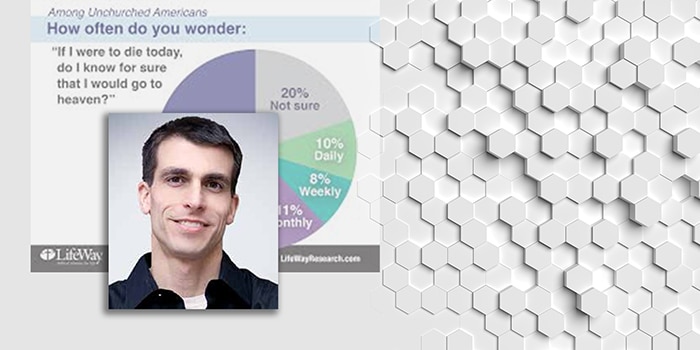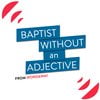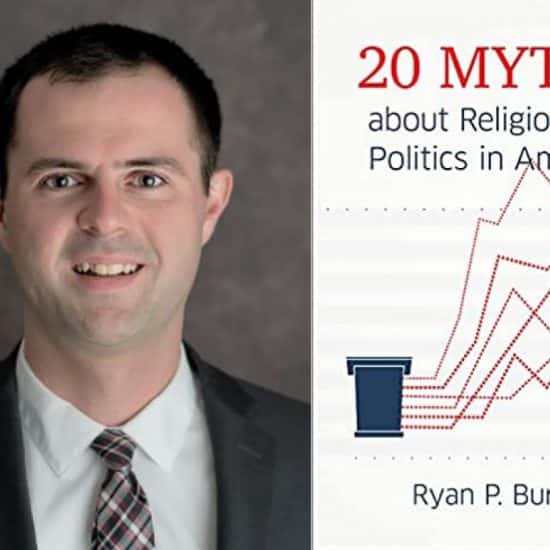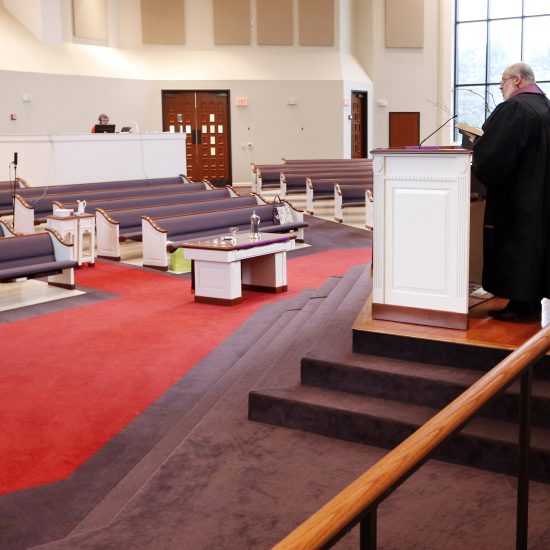
Scott McConnell is executive director of LifeWay Research, the survey arm of the Southern Baptist Convention’s LifeWay Christian Resources. He has led the organization since 2016 and worked for it since 2006. He is also the author of multiple books. Word&Way Editor Brian Kaylor interviewed McConnell in April during the annual convention of the Evangelical Press Association in Oklahoma City, Okla. This interview has been edited for clarity.
How did you get into doing research?

Scott McConnell
I actually have a degree in marketing. And so when I got out, I thought I’d have some brand management-type job. But the first good offer I got was from a market research firm — actually probably one of the original market research firms, located in Philadelphia, called National Analysts at the time and NAXION today.
I got to work on some great projects for about three years with support to 100 companies, but one of those projects was with a Baptist publisher, Baptist Sunday School Board at the time, now LifeWay Christian Resources. I loved the project and there was an entry level job and I jumped at the chance to work for LifeWay.
Some people might wonder why do we need to be spending money doing research. We’ll talk about some of your specific projects, but first I want to get that big picture of why even do this research?
We pretty much have the conviction that it’s helpful to understand what’s really going on. Kind of like if you’re trying to cross a dark room, it’d be really nice if somebody flicked the lights on and off once or twice for a second for you to understand where the obstacles are and where the clear path is. And we think research helps do that.
We understand sometimes when the lights get flicked on with a project that the news isn’t always good, that the church isn’t as healthy as we want it to be or our culture is looking less like God would want it to look. And yet other times we see some good news, we see some great stories of churches that are serving the people in their community and sharing Christ with them, and stories of rapid growth of people coming to Christ. And those are exciting times. But we feel it’s our obligation to really tell the truth either way — what we find — and to be objective and scientific with how we do the research.
I like that metaphor of the lights, and particularly because it was the idea that you’re flipping it on but the lights are going back off, right? And so that’s what your research is, it’s a snapshot. And it’s not necessarily the end all be all, and we can now see everything, but it does give us a quick glimpse of perhaps a better understanding of what’s in the room.
Very much. ‘Snapshot’ is a word we use quite a bit, because it’s a point in time. Literally events could happen the next day that would change people’s opinions. Now on most subjects, that doesn’t happen. But once in a while we’ll run across a topic where American or churchgoers’ opinions change rapidly. And it’s important for us to be monitoring those things.
So, how do you do this research?
It totally depends on who we need to learn from. So, first, we would try to work backwards from the decision we need to make or what exactly we need to be learning. And once we sketch out what we need to learn, then it’s a matter of who best knows that and then coming up with a method to reach them in a systematic way.
If it’s pastors, we’re typically doing a phone survey because there’s not a list of every pastor’s email — and pastors just said, ‘Amen!’ If we’re trying to reach Americans or if we’re trying to reach churchgoers, typically, we’re tapping into one of the very large online panels that are constantly recruiting Americans who are willing to do research. And one of the larger panels we work with has a million people in it. So, it’s not just this tiny group of people that are speaking to what we do.
But it’s done in a very systematic way. We’re able to make sure the demographics look like churches today or look like Americans today.
These are the same scientific methods that sociologists and psychologists are using in their work in academia and their work in the sciences. We want to be using those standards and not settling for less.
So, to all the pastors reading: if LifeWay Research calls, answer your phone and take the survey!
Absolutely! Yes, it takes a few minutes of your time. But it really is a contribution to others. When you do it on some projects there might be an incentive to participate. But in many cases it really is helping others with just a few minutes of your time.
We find that pastors, if we can catch them — you know, they’re often serving somebody and not in the church office when we’re calling — but when we can catch them, they’re usually very polite and willing to spend a few minutes with us.
Let’s move from some of the science part and then jump to some of the results. What have been a couple of your more recent projects that you have reported?
We do a variety of things from just some polling questions. One of the recent ones we did just weeks ago was pastors’ opinions on sports betting, as the NCAA tournament was starting. And it’s one of those things where you hear some astounding numbers of billions of dollars being bet through formal channels, not to mention a friendly wager between friends. We actually saw some strong differences between pastors’ opinions on sports betting and what we saw from Americans. But both groups actually are not wild about it being legal nationwide, which, because of a court case about a year ago, that’s actually a possibility.
Did your team have any bets on how the results would come out?
We actually did not! But we played over at the free bracket challenge. And I’d be happy to talk about last year’s performance for my bracket but not this year’s.
This spring will have a lot of data on discipleship in churches — and not just how pastors are doing it — but the other releases will be really learning from the laity, where they’re at in their spiritual walk by using some validated questions that we’ve tested over time.
So, we’re trying to help churches with their core purpose. And, circling back to those things, we’ve done some great research with partners. We have the privilege of partnering with other like-minded ministries that want to know the facts about what’s going on in our church and in our culture today.
We think it helps pastors and leaders make better decisions. You know, we think some of these topics kind of give us a kick in the pants when we’ve done research on mental illness and the church, divorce and the church, abuse and the church. Those are topics we’ve not really wanted to talk about, and in some respects maybe previous generations swept them under the rug and made them hush-hush, trying to protect the church’s reputation or God’s reputation. But God calls sin, sin. And, God also calls weakness and sickness what they are, and he wants us to turn to him during those times.
Some of those topics have been some of the most rewarding even though they’re very difficult sometimes to write the survey, to read the results. Those are difficult things to work through. But God wants the church to be there for people in their times of need. And we feel that those are important topics for us to be addressing.
 Note: A longer version of this conversation can be heard in episode 74 (May 29) of the Word&Way podcast “Baptist Without An Adjective” at podcast.wordandway.org. Learn more about LifeWay Research at lifewayresearch.com.
Note: A longer version of this conversation can be heard in episode 74 (May 29) of the Word&Way podcast “Baptist Without An Adjective” at podcast.wordandway.org. Learn more about LifeWay Research at lifewayresearch.com.






